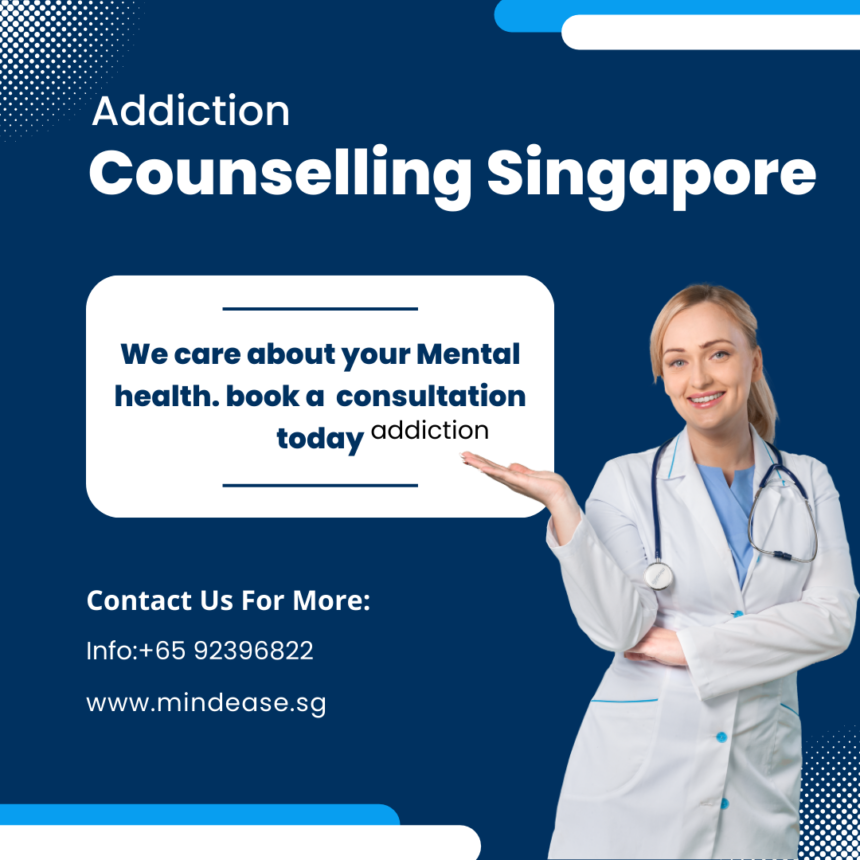Addiction is a complex and multifaceted disorder, encompassing a range of behaviours and substances, from alcohol and drugs to gambling and internet addiction. It’s a challenge that affects not just the individual grappling with the addiction but also their families, friends, and communities.
Given the diverse nature of addiction, it’s no surprise that there are various approaches to addiction counselling in Singapore, and elsewhere; each tailored to meet the unique needs of individuals at different stages of their recovery journey. Understanding these approaches can be the key to finding the one that works best for you or your loved one.
Cognitive Behavioural Therapy (CBT)
Cognitive Behavioural Therapy is a widely recognized and effective treatment for addiction. CBT is grounded in the belief that our thoughts, feelings, and behaviours are interconnected, and negative thoughts and beliefs can lead to destructive behaviours, such as substance abuse. Through CBT, individuals learn to identify and challenge these negative thought patterns and replace them with healthier, more constructive ones. This approach is particularly effective for individuals who are motivated to recover and are willing to engage in self-reflection and personal growth.
Motivational Interviewing (MI)
Motivational Interviewing is a client-centred counselling style that addresses ambivalence to change. It’s an empathetic and supportive approach that seeks to evoke the person’s own motivation for change and adherence to a recovery plan. MI is particularly useful in the early stages of considering recovery, helping clients overcome their resistance to change by exploring the pros and cons of their addiction and envisioning a healthier life.
Group Therapy
Group therapy offers a communal environment where individuals can share experiences, challenges, and victories with peers who are going through similar struggles. Led by a trained therapist, these groups provide valuable support, insight, and feedback. Group therapy helps individuals realize they are not alone in their journey, creating a sense of belonging and fostering a supportive network that is essential for long-term recovery.
Family Therapy
Addiction doesn’t occur in isolation; it affects the entire family system. Family therapy involves family members in the counselling process, helping to heal relationships and improve the family dynamics that may contribute to or have been damaged by addiction. This approach recognizes the crucial role families play in recovery and equips them with strategies to create a healthier, more supportive home environment.
12-Step Facilitation
12-Step programs like Alcoholics Anonymous (AA) and Narcotics Anonymous (NA) are well-known mutual aid organizations that offer a structured approach to recovery, based on spiritual and moral principles. While not counselling per se, many therapists recommend 12-Step participation to complement individual therapy. Facilitation involves encouraging clients to engage with these programs, helping them integrate the 12-step principles into their recovery plan.
Dual Diagnosis Counselling
Many individuals struggling with addiction also suffer from co-occurring mental health disorders, such as depression, anxiety, or PTSD. Dual diagnosis counselling is designed to address both the addiction and the mental health condition simultaneously. This integrated approach is crucial for individuals with dual diagnoses, as treating one condition without addressing the other is often ineffective.
Holistic Therapies
Increasingly, addiction counselling incorporates holistic approaches that address the person’s physical, emotional, and spiritual well-being. These may include yoga, meditation, acupuncture, and nutrition counselling. While not standalone treatments, when combined with more traditional therapies, they can provide comprehensive support for the recovery process, helping to relieve stress, improve overall health, and build resilience against relapse.
Choosing the Right Approach
Deciding which approach will be most effective depends on various factors, including the nature of the addiction, the individual’s personality and preferences, their family situation, and whether there are co-occurring mental health conditions. It’s also not uncommon for individuals to engage in a combination of therapies or transition from one approach to another as they progress through their recovery journey.
A critical first step is reaching out to a professional who can conduct a thorough assessment and recommend an appropriate treatment plan. Remember, the journey to recovery is deeply personal, and what works for one person may not work for another. The key is to keep an open mind and be willing to explore different approaches until you find what works best for you.
In conclusion, there’s no one-size-fits-all solution to addiction counselling in Singapore, or wherever you are situated. The diversity of approaches reflects the complexity of addiction itself, each offering different tools and strategies for overcoming this challenge. By understanding the options available and actively participating in the decision-making process, individuals seeking recovery can find the path that best aligns with their needs, setting the stage for a successful and sustainable recovery.


